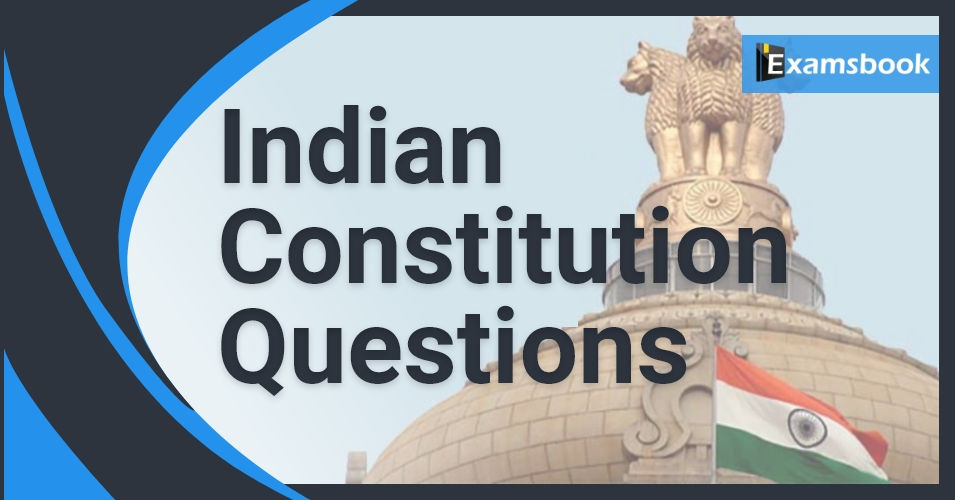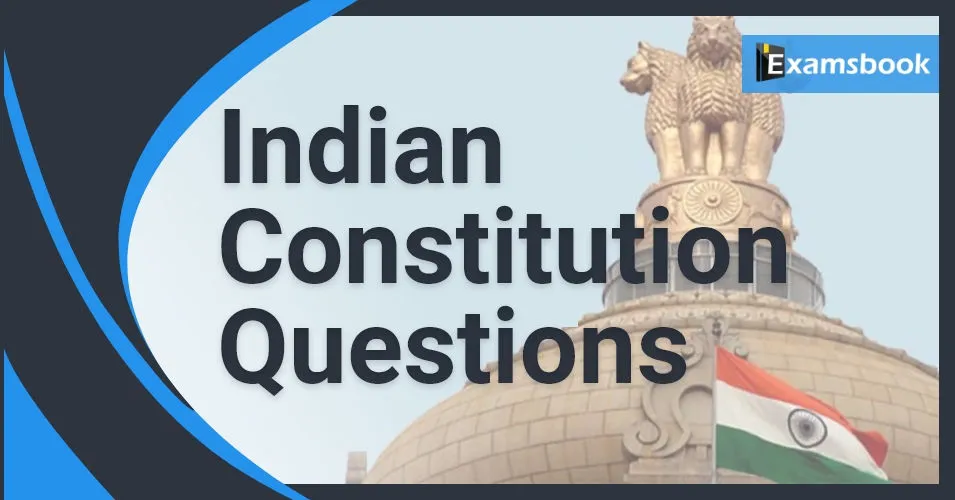


The Constitution of India guarantees the right to education to all children in the age group of:
(A) 6-14 years
(B) 6-18 years
(C) 6-10 years
(D) 6-12 years
The concept of the Directive Principle of State Policy in our constitution was taken from which constitution?
(A) USA
(B) Canada
(C) U.S.S.R.
(D) Ireland
Articles 36-51 under Part IV of the Indian Constitution deal with Directive Principles of State Policy (DPSP). They are borrowed from the Constitution of Ireland, which had copied it from the Spanish Constitution.
From which country the system of election of the President in the Indian Constitution has been taken?
(A) Britain
(B) United States of America
(C) Ireland
(D) Australia
The philosophical part of the Constitution is largely borrowed from the American and Irish constitutions. The political part of the constitution has been drawn from the British constitution. It includes the principle of Cabinet Government and the relations between the Executive and the legislature.
For which language included in the Indian Constitution, the Jnanpith Award was not given till 2011?
(A) Marathi
(B) Sindhi
(C) Hindi
(D) Gujarati
The Jnanpith Award is an Indian literary award presented annually by the Bharatiya Jnanpith.
It is awarded to an author for their "outstanding contribution towards literature" Instituted in 1961, The award is bestowed only to the Indian writers writing in Indian languages included in the Eighth Schedule to the Constitution of India and English, with no posthumous conferral.
The Bharatiya Jnanpith, a research and cultural institute founded in 1944 by industrialist Sahu Shanti Prasad Jain of the Sahu Jain family, conceived an idea in May 1961 to start a scheme "commanding national prestige and of international standard" to "select the best book out of the publications in Indian languages".
Which among the following was not a part of the original constitution of India adopted in 1950?
(A) Fundamental Rights
(B) Directive Principles of State Policy
(C) Fundamental Duties
(D) Emergency Provisions
The correct answer is Fundamental Duties. The original constitution of India adopted in 1950 did not include Fundamental Duties. Fundamental Duties were added in the constitution of India in 1976 by the 42th amendment.
What is the maximum period up to which the Proclamation issued by the President / extended by the Parliament under Article 356 of the Constitution can normally remain in force?
(A) six months
(B) one year
(C) two years
(D) until it is repealed by the Parliament
If approved by both houses, President's rule can continue for 6 months. It can be extended for a maximum of 3 years with the approval of the Parliament done every 6 months.
In which of the following year the Fundamental Duties were inserted in the Constitution?
(A) 1975
(B) 1978
(C) 1976
(D) 1980
The Fundamental Duties of citizens was added to the Constitution by the 42nd Amendment in 1976, upon the recommendations of the Swaran Singh Committee that was constituted by the government earlier that year.
Which article of the Constitution says that the Counsel of States (Rajya Sabha) shall not be dissolute?
(A) Article 83
(B) Article 53
(C) Article 80
(D) Article 154
Article 83 : Duration of Houses of Parliament
(1) The Council of States shall not be subject to dissolution, but as nearly as possible one-third of the members thereof shall retire as soon as may be on the expiration of every second year in accordance with the provisions made in that behalf by Parliament by law.
Which one of the Directive Principles of State Policy deals with the promotion of international peace and security?
(A) Article 32
(B) Article 67
(C) Article 51
(D) Article 55
Article 51 of the Constitution which is a Directive Principle of State Policy directs the state to promote international peace and security and maintain just and honorable relations between nations.
When was the first Central Legislative Assembly constituted?
(A) 1922
(B) 1923
(C) 1921
(D) 1920
The Central Legislative Assembly was the lower house of the Imperial Legislative Council, the legislature of British India. It was created by the Government of India Act 1919, implementing the Montagu–Chelmsford Reforms. It was constituted in 1921. Frederick whyte was the first president of assembly, while Vithalbhai Patel was the its second president.
Get the Examsbook Prep App Today